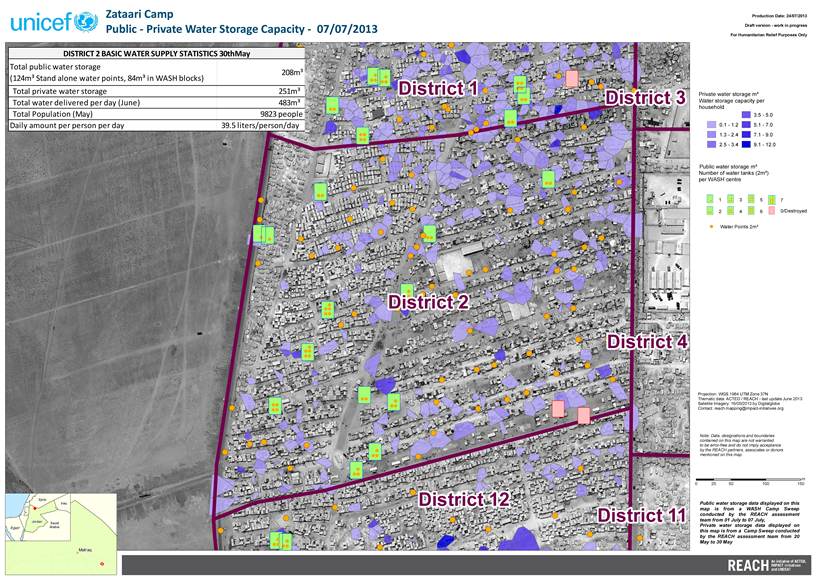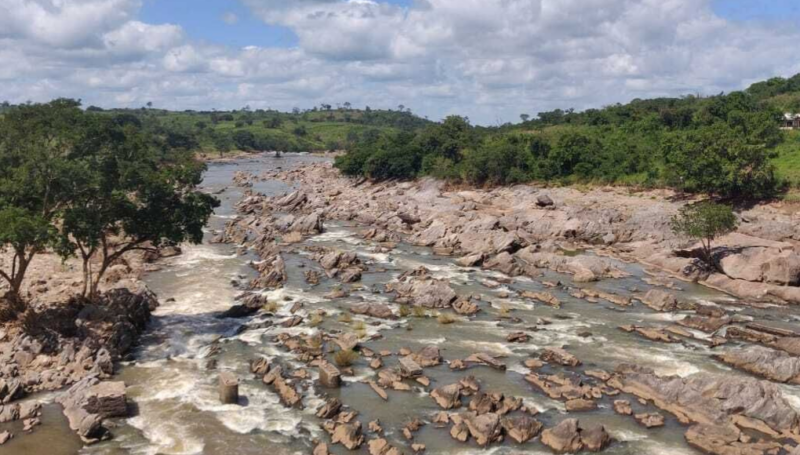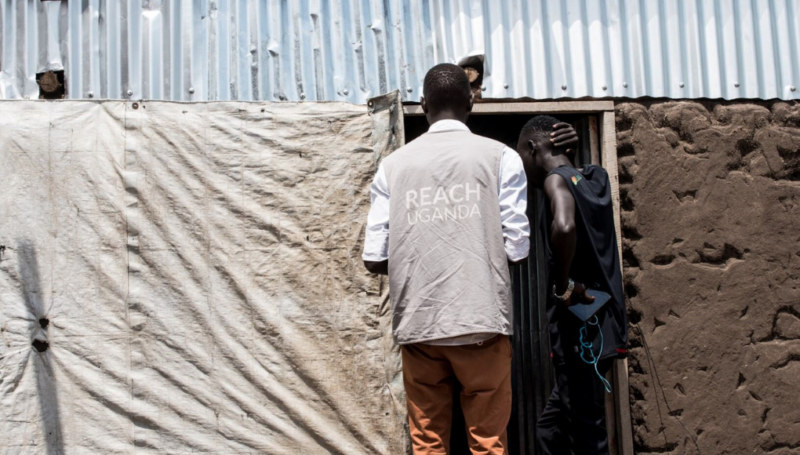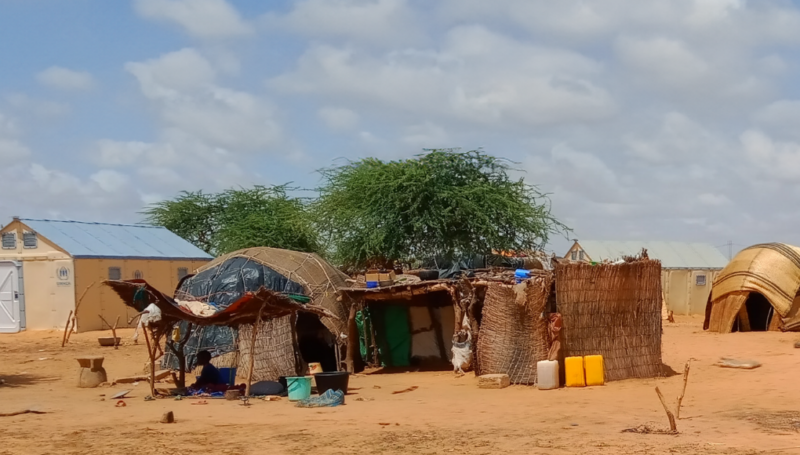Voices from the Field : Featured Article
Jordan : 120,000 Syrians are currently finding refuge in Za’atari refugee camp in north Jordan, situated in Mafraq governorate less than 10 kilometres from the border with Syria. Providing refugees with their essential daily needs is a challenging task that requires careful analysis of the situation and extensive coordination. Of top priority for the refugees and all actors in the camp is ensuring a fair distribution of water across the camp.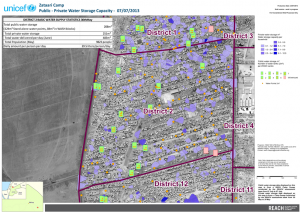
A key challenge for promoting a fair distribution of water was the lack of information about the private and public water storage capacity throughout the different sectors of Za’atari; this was compounded by lack of accurate information on the total number of people residing in the camp. To overcome such challenges REACH, with the support of UNICEF, conducted two assessments that surveyed all households in the camp. As a result, for the first time the size of the refugee population could be compared to the water storage capacity. Leading from this, REACH was then able to much more accurately determine the water supply needs per district of the camp.
In order to inform effective humanitarian planning among relevant aid actors working in the camp, the findings of REACH’s assessment were disseminated through maps, factsheets as well as several presentations to coordinating bodies.
The impact of REACH’s intervention was significant, enabling humanitarian actors to accurately and effectively plan the camp’s water supply infrastructure. With a high level of internal mobility in the camp and with the water supply infrastructure requiring constant maintenance, a greater level of knowledge of the needs of individuals and local water storage has made a strong impact on the planning of this service. Relevant water supply agencies have as a result of REACH’s assessment changed their water supply strategy to ensure a fairer distribution of water to all refugees in Za’atari, meaning that the delivery of aid will become more effective and the essential needs of more refugees will be met.
To read more about the developments in Jordan and how REACH is contributing to better planning, please browse through our latest publications from the field or visit the Jordan country page.





